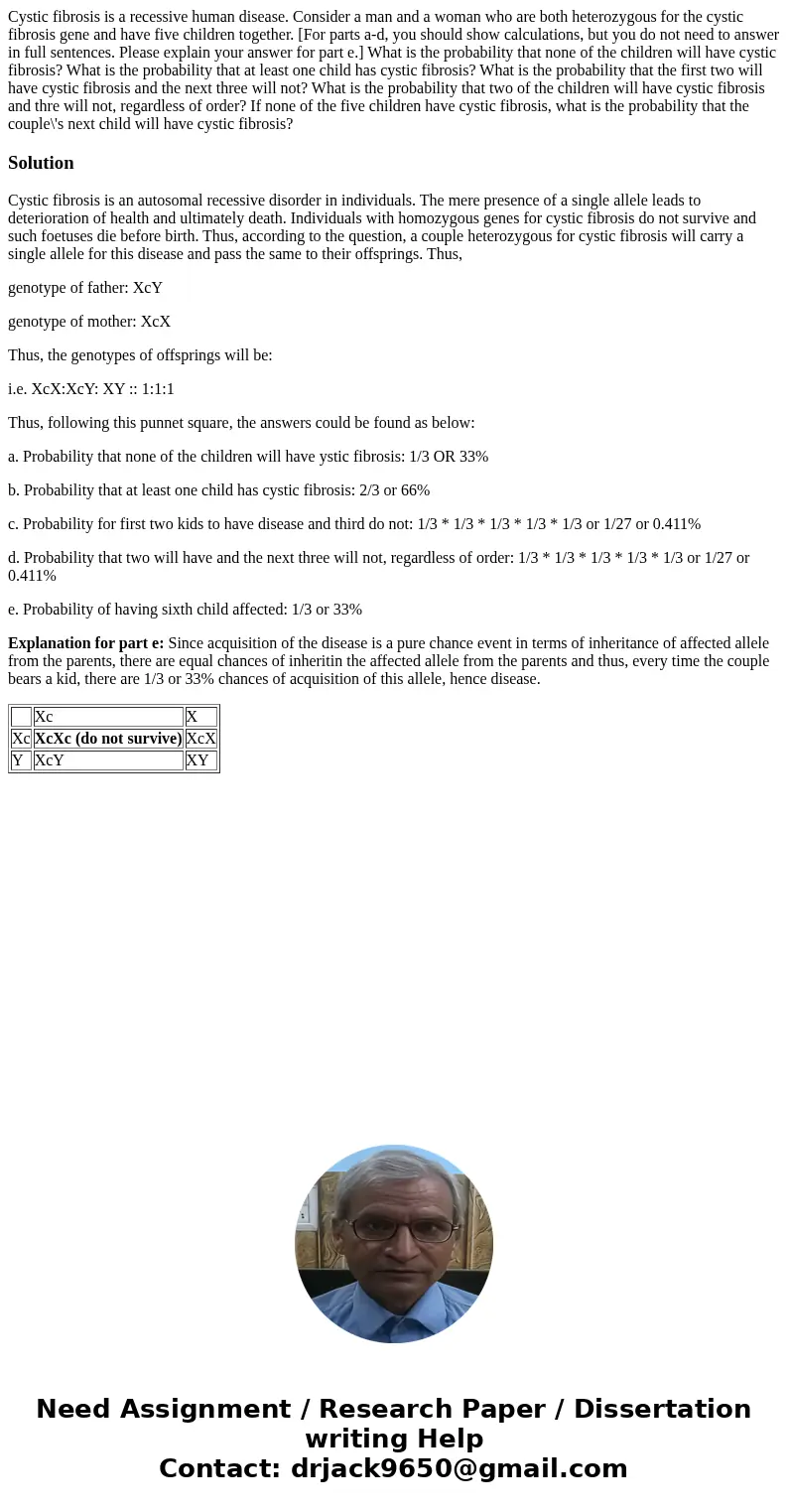Cystic fibrosis is a recessive human disease Consider a man
Solution
Cystic fibrosis is an autosomal recessive disorder in individuals. The mere presence of a single allele leads to deterioration of health and ultimately death. Individuals with homozygous genes for cystic fibrosis do not survive and such foetuses die before birth. Thus, according to the question, a couple heterozygous for cystic fibrosis will carry a single allele for this disease and pass the same to their offsprings. Thus,
genotype of father: XcY
genotype of mother: XcX
Thus, the genotypes of offsprings will be:
i.e. XcX:XcY: XY :: 1:1:1
Thus, following this punnet square, the answers could be found as below:
a. Probability that none of the children will have ystic fibrosis: 1/3 OR 33%
b. Probability that at least one child has cystic fibrosis: 2/3 or 66%
c. Probability for first two kids to have disease and third do not: 1/3 * 1/3 * 1/3 * 1/3 * 1/3 or 1/27 or 0.411%
d. Probability that two will have and the next three will not, regardless of order: 1/3 * 1/3 * 1/3 * 1/3 * 1/3 or 1/27 or 0.411%
e. Probability of having sixth child affected: 1/3 or 33%
Explanation for part e: Since acquisition of the disease is a pure chance event in terms of inheritance of affected allele from the parents, there are equal chances of inheritin the affected allele from the parents and thus, every time the couple bears a kid, there are 1/3 or 33% chances of acquisition of this allele, hence disease.
| Xc | X | |
| Xc | XcXc (do not survive) | XcX |
| Y | XcY | XY |

 Homework Sourse
Homework Sourse